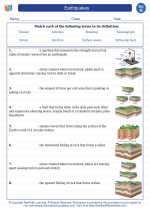Mutation
A mutation is a change in the DNA sequence of an organism. These changes can occur due to errors in DNA replication, exposure to mutagens (such as radiation or certain chemicals), or even as a result of natural processes in the body. Mutations can be classified into different types, including point mutations, frameshift mutations, and chromosomal mutations.
Types of Mutations
Point Mutations
Point mutations involve a change in a single nucleotide within the DNA sequence. This can result in the substitution of one nucleotide for another, the insertion of an extra nucleotide, or the deletion of a nucleotide.
Frameshift Mutations
Frameshift mutations occur when the addition or deletion of nucleotides causes a shift in the reading frame of the genetic code. This can drastically alter the resulting protein sequence and function.
Chromosomal Mutations
Chromosomal mutations involve changes in the structure or number of chromosomes. This can include deletions, duplications, inversions, or translocations of large segments of DNA.
Effects of Mutations
Mutations can have various effects on an organism. Some mutations may be neutral and have no discernible impact on the organism's traits or health. Others can be beneficial, providing an advantage in certain environments. However, mutations can also be harmful, leading to genetic disorders or increased susceptibility to diseases.
Study Guide
- What is a mutation?
- What are the different types of mutations?
- How do mutations occur?
- What are the effects of mutations on an organism?
- Give an example of a genetic disorder caused by a mutation.
- Explain the difference between point mutations and frameshift mutations.
- How can mutations be beneficial to an organism?
- Discuss the role of mutagens in causing mutations.
Understanding mutations is important in the field of genetics and evolutionary biology, as it provides insight into the mechanisms of genetic variation and the development of genetic diseases.
.◂Science Worksheets and Study Guides Eighth Grade. Earthquakes
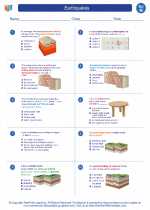
 Worksheet/Answer key
Worksheet/Answer key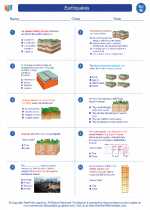
 Worksheet/Answer key
Worksheet/Answer key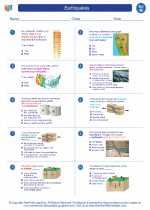
 Vocabulary/Answer key
Vocabulary/Answer key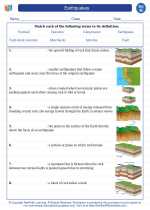
 Vocabulary/Answer key
Vocabulary/Answer key
 Vocabulary/Answer key
Vocabulary/Answer key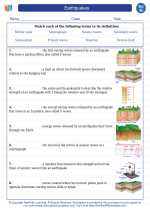
 Vocabulary/Answer key
Vocabulary/Answer key